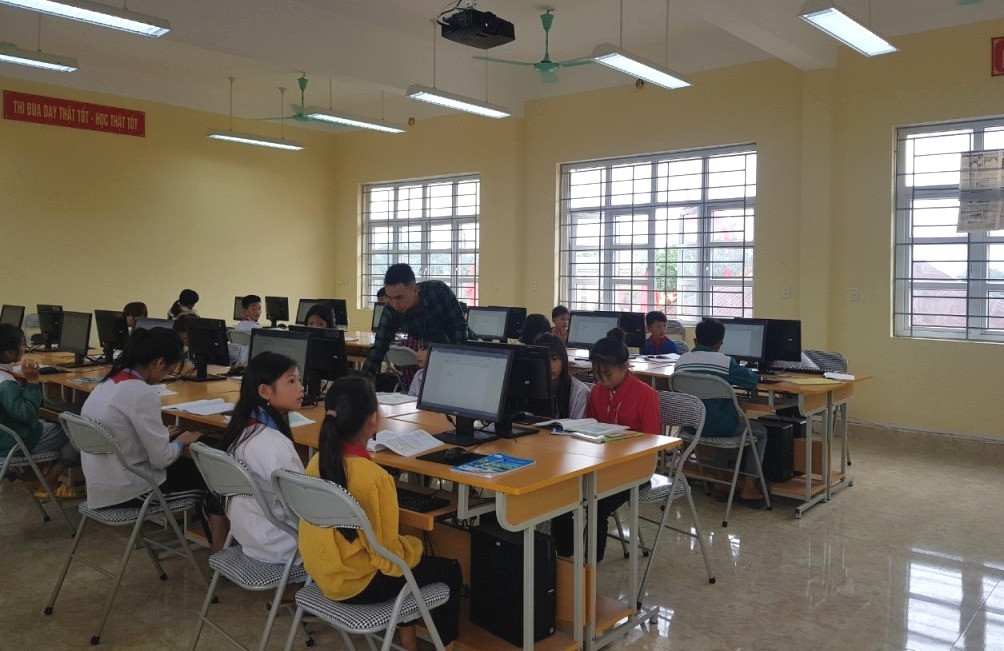Developing human resources in ethnic minority areas
Quang Ninh has currently implemented a range of programs, policies and allocated financial resource in improvingon developing health and knowledge as well as maintaining job and income security for ethnic minority people. 
According to statistics, about 45,700 ethnic minority students are studying at 4 levels from preschool to high school and nearly 2,570 ethnic minority teachers and employees are working at educational units across the province.
The provincial People’s Committee and the Department of Education and Training have offered these people many priorities, especially in terms of learning and working conditions.
Quang Ninh has allocated more than VND 19 billion in repairing schools, purchasing teaching equipment and adequate facilities at boarding schools, gradually improving the academic results of students in disadvantaged areas.
Currently, 100% of temporary classrooms in disadvantaged communes in the province have been replaced by permanent ones; the system of smart teaching equipment has been gradually invested. Besides, supporting policies on food and tuition for students have been developed, along with allowances and subsidies for staff and teachers in ethnic minority, mountainous, and border areas.

In terms of healthcare access, the health sector has launched many specific policies encouraging highly skilled and specialized doctors to work in medical facilities in disadvantaged, mountainous, and island areas. Particularly, priority is given to staffing quotas for recruiting such talented employees.
Hundreds of medical officials and employees in mountainous and ethnic minority areas are given training courses domestically and abroad annually. At the same time, investment in facilities and equipment for communal medical health institutions is increased. As a result, the quality of ethnic minority human resources in field of healthcare has gradually been improved, contributing to satisfying the medical requirements and developing the health of local residents.
Vocational education and job creation for people in ethnic minority areas have been enhanced through a series of supporting policies. The Department of Labor, Invalids, and Social Affairs has cooperated with relevant departments and localities to open many vocational training classes for rural workers in agriculture - forestry - fishery, services, and industry - construction sectors.
As of 2016, 144,500 ethnic minority employees have been given jobs, 2,000 of whom go to work abroad for a definite time.

Jobs consulting activities have been developed in these areas, opening up many job opportunities for ethnic minority workers.
Therefore, the human resources of ethnic minorities in the province have developed, contributing to the socio-economic development and poverty reduction in this community.
The average income in such areas is nearly VND 33 million/person/year; the rate of poor households decrease to 0.36% at present.






